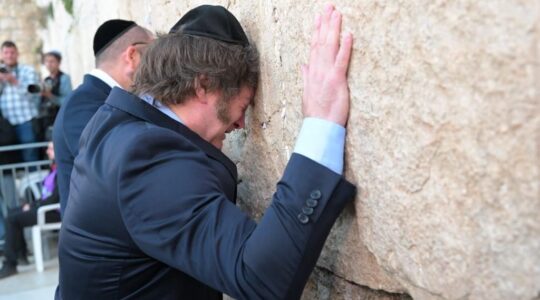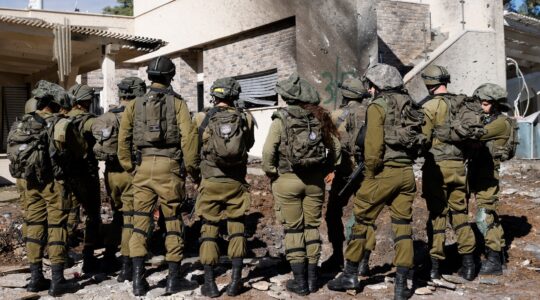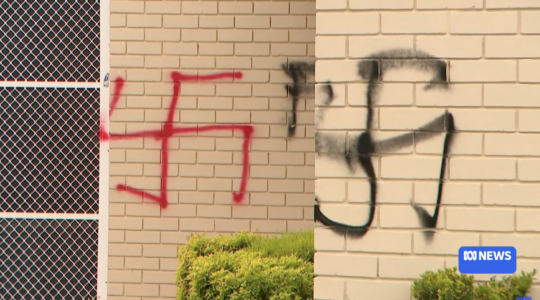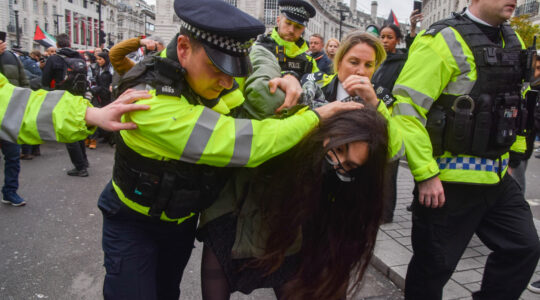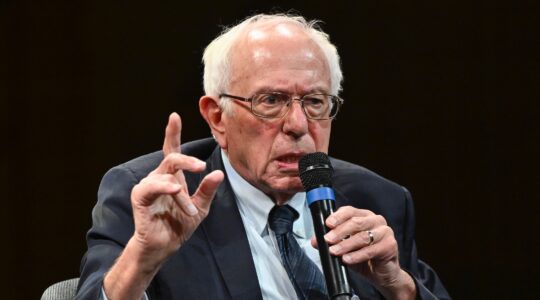(JTA) — The president of the United Nations General Assembly wore a scarf featuring an image of the Palestinian flag during a special session to mark the International Day of Solidarity with the Palestinian People.
Peter Thomson of Fiji also donned a traditional Palestinian kaffiyeh during the meeting Tuesday to mark the observance held each year in the United Nations on Nov. 29 — the day in 1947 that the international body voted to recognize the Partition Plan that called for the creation of the State of Israel and an independent Arab state.
Thompson said that peace between Israel and the Palestinians is “fundamental to our efforts to realize the inalienable rights of the Palestinian people, and to ensure that they are able to enjoy lives of dignity, opportunity, prosperity, and equality.”
Achieving peace has been harmed by “continuing terror attacks against civilians, and brutal acts of violence by both sides,” he said, not specifying that most of the attacks have come from the Palestinian side.
Thompson also attended a meeting of the U.N.’s Committee on the Exercise of the Inalienable Rights of the Palestinian People held Tuesday.
The General Assembly was scheduled to consider six anti-Israel resolutions on Wednesday. One resolution calls on Israel to transfer control of the Golan Heights to Syria, despite the ongoing bloody civil war in the country. Another condemns Israel for actions in Jerusalem, and uses only the Islamic name for the Temple Mount, ignoring the site’s biblical role in Judaism and Christianity.
Israel’s ambassador to the United Nations, Danny Danon, addressed the General Assembly as part of the special session while displaying the cover of The New York Times from Nov. 30, 1947, the day after the Partition Plan vote. The headlines read: “Assembly Votes Palestine Partition,” “Arabs Walk Out … Disavow Any Partition Role.”
“This is the whole story,” Danon said.
“The real goal of the P.A. is to continue to exist as a corrupt entity living off the good will of the international community without the responsibilities of governing. And they know the only way to do so is to continue the conflict.
“If you really want to show solidarity with the Palestinian people,” he concluded, “then end this charade and demand that the Palestinian leaders finally return to the negotiating table.”
JTA has documented Jewish history in real-time for over a century. Keep our journalism strong by joining us in supporting independent, award-winning reporting.

